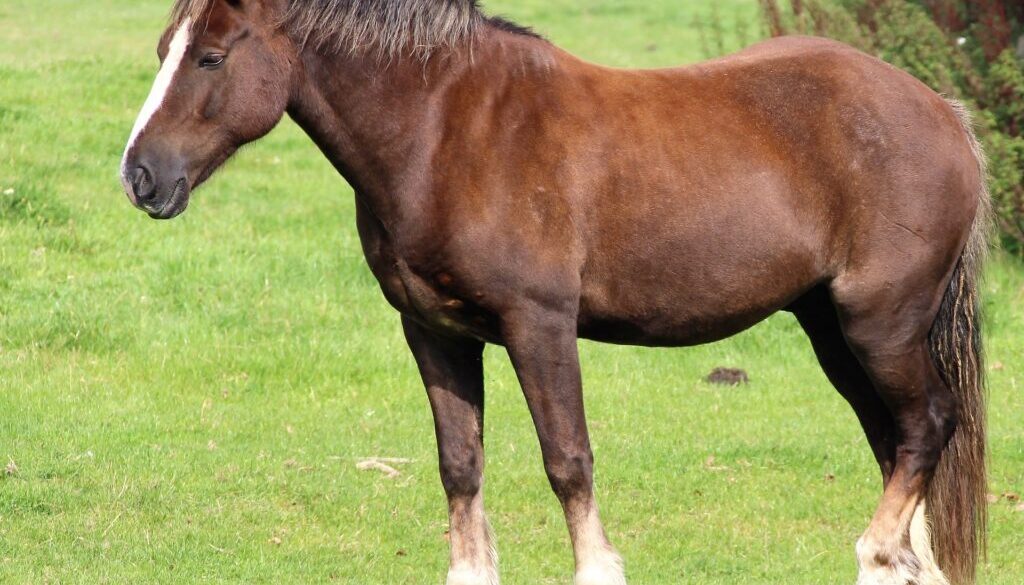Agricultural Leases, or A Horse is a Horse
A horse, a horse! My kingdom has a horse.*
If you have been following the United States Senate hearings on the nomination of Judge Neil Gorsuch for the Supreme Court, you may have heard some discussions about how judges should read statutes and the constitution. Without getting too technical, while at the same time trying to avoid the risk of oversimplification, the Senators have been talking principally about two schools of thought. One is that judges should read the words and apply them, period, whatever the result. The second school is that judges should read the words in the context of the problem the writers were trying to resolve and give them a meaning that the writers intended, or would have intended if they had foreseen the problem in the case before the court, even if the writers did not use exactly the right words.
The Iowa Supreme Court last month decided a case that is an instructive example of how these two theories play out when courts read statutes that, if applied according to their plain meaning, could lead to absurd results. The case involved a statute addressing the definition of agricultural leases. The particular question was, “Does a single horse make a farm?” Porter vs. Harden (Iowa S. Ct. No. 15–0683, Filed March 10, 2017 Amended March 13, 2017). In answering the question, the majority of the court employed the context based rule whereas the dissent, and the Iowa Court of Appeals before it, employed the plain meaning rule.
The question arose in the setting of a lease termination and the answer was important because Iowa law gives tenants differing protections depending on the type of property being leased and the duration of the lease. For example, residential tenants are given more protections than commercial tenants because generally residential tenants have much less bargaining power and sophistication than commercial tenants who have the means to negotiate with their landlords.
Farm tenants, since 1939, have been given certain statutory protections because of the seasonal nature of the business and the historical importance of agriculture to Iowa. Particularly, in terminating a farm tenancy, the landlord must follow timelines set by the legislature. Generally, the law requires written notice of termination to be given on or before September 1, with termination to occur the following March 1. This assures that there is sufficient time for the tenant to harvest growing crops and for the parties to negotiate a new lease or find other land to rent, or find another tenant. A 2006 amendment to the statute added grazing to the existing list of agricultural activities.
The parties in the Porter case had a month to month lease. In those cases, either party has the power to cancel the lease by giving 30 days notice to the other party, if the subject of the lease is not agricultural land. Porter, the landlord, gave Harden, the tenant, notice that it was canceling the lease in 30 days, thus following the legal requirements for terminating a month to month lease. The tenants on this six-acre property, which was their primary residence, claimed they were entitled to the much longer notice required to terminate a farm tenancy because they had a horse grazing on the property. They claimed that a close reading of the statute regarding farm leases required only one grazing animal to qualify the property as a farm. The district court did not agree and ruled in the landlord’s favor saying, “the keeping of one 38-year old horse does not make this a farm tenancy.” The tenant appealed.
The Iowa Court of Appeals reversed the district court and ruled that, even though it might be an absurd result, as the statute was written, the definition of livestock “means an animal …”. Reading the statute strictly, one old horse could make a farm tenancy. The landlord asked the Supreme Court to review the Court of Appeals’ decision.
The Supreme Court looked again at the statute and decided the Court of Appeals was reading the statute too literally. To determine what the legislature meant required reading the statute in context of its purpose as well other statutes addressing the same or similar subject matter. It then said, “just as we would not conclude that someone with a small vegetable garden ‘produces crops . . . on the land’ …, we think it would be questionable to hold that someone keeping an old mare at the homestead ‘provides for the care and feeding of livestock on the land’ within the meaning of the same statute.”
The Court emphasized that it would assume the legislature intended a reasonable interpretation of the statute and imprinted a primary purpose test on the statute. That is, one must look at the property to see if its main object was the growing of crops or the feeding of livestock. By accepting the “one old mare” argument, any tenant anywhere could create a farm merely by bringing an old horse or a few chickens onto the property. Probably not what the legislature intended.
However, one justice dissented essentially adopting the Court of Appeals reasoning. When a statute’s language is plain and unambiguous, a court should look no further than the statute. Here the statute says “an animal.” Even though the result may be absurd, it is up to the legislature to fix it, not the courts. The courts have only to apply the statute as written, even if poorly written. If the legislature does not like the result, it can rewrite the statute.
If you have questions about this case, or other issues involving leases, you need not hesitate to contact us.
* Apologies to William Shakespeare’s play, Richard III, Act-V, Scene-IV.


